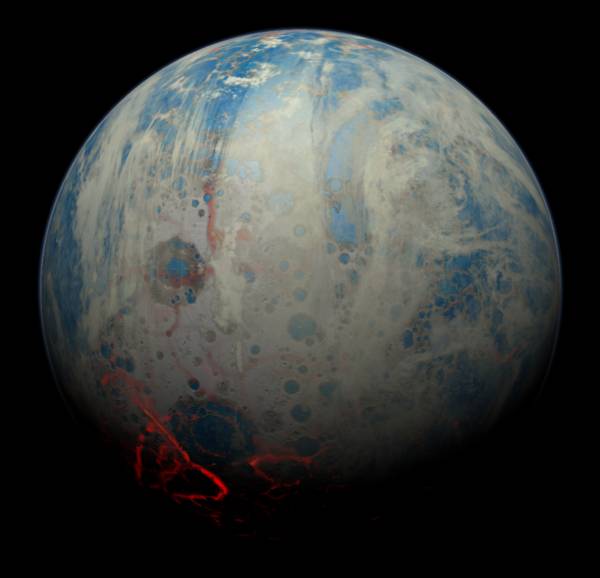Since September 11th we have heard a great deal about what Islam allegedly is, and what it allegedly is not. On the one hand, Richard Dawkins has declared that anyone who believes that martyrs are destined for paradise is a 'loaded gun'; on the other, we are informed by moderate Muslims that Islam is a 'religion of peace'. In reality, Islam is much more complicated and interesting than that. Most humanists in Britain are woefully ignorant of Islam; we need to know more about the beliefs of people who are our friends, neighbours, workmates, drinking partners (yes, you did read that right), lovers, and, potentially, recruits to rationalism. This issue's column will look at Islam as it is represented on the Internet, plus some other sites of topical interest. MSANews host an excellent collection of material on bin Laden at: http://msanews.mynet.net/Scholars/Laden/ They seem unhappy to be the centre of so much unsolicited attention, and are careful to disassociate themselves from bin Laden himself (CNN apparently referred to them as bin Laden's 'official' site!), but all credit to them for being courageous enough to maintain the site. They carry the text of the "Ladenese Epistle" bin Laden's 1996 Declaration of War on the United States essential reading for an understanding of his outlook. Material on the Taliban and the situation in Afghanistan can be found on this Afghanistan Studies web page: http://www.academicinfo.net/afghantaliban.html, and the Revolutionary Association of the Women of Afghanistan (a "political/social organization of Afghan women struggling for peace, freedom, democracy and women's rights in fundamentalism-blighted Afghanistan") can be found at: http://www.rawa.org/
Dr Alan Godlas, Professor of Religion at the University of Georgia, has a collection of articles and other material on Islam on his Islamic Studies web page: http://www.arches.uga.edu/~godlas/. He provides an extremely interesting and useful overview of Islam and Islamic ideas on a range of topics. Less academic is the "Brief Illustrated Guide to Understanding Islam" homepage at http://www.islam-guide.com/, which is specifically aimed at non-Muslims. It therefore cannot be considered to be objective, but with that proviso in mind is a decent overview of the way many Muslims think. For key Islamic scriptures and other religious texts, go to http://wings.buffalo.edu/sa/muslim/isl/texts.html, which includes not only the Qur'an, but also Hadith collections prophetic traditions often overlooked by atheists from a Christian background who are used to dealing with Bible-based religious arguments.
General gateways to Islamic information on the web are http://www.ummah.org.uk/ (updated daily), and http://www.ukim.org/ The UK-based "About Islam" site (http://www.unn.ac.uk/societies/islamic/) is built on the "hope that Muslims, Christians and Jews will find ways to work together to bring peace on earth by eradicating immorality, fear, hate, disease, poverty and injustice." From a moderate Islamic perspective, it aims to provide "accurate" information about Islam understanding will help to eliminate conflict. In theory. In practice, Islam is also capable of presenting an intolerant, militant, 'fundamentalist' face (though like all forms of fascism it has its roots in real problems). About Atheism has a guide to various forms of extremist Islam at: http://atheism.about.com/library/islam/blfaq_islam_extremists.htm .
The UK Muslim Student home page at http://www.muslimstudent.org.uk/ is also worth reading in order to understand their belief that non-Islamic regimes must be overthrown "in order to establish the Islamic state on their ruins". Hizb-ut-Tahrir, banned from many university campuses, set out their uncompromising stance at http://www.hizb-ut-tahrir.org/ Al Muhajiroun, similarly banned, are at: http://almuhajiroun.com/
Fortunately, there are those from a Muslim tradition who are pushing in another direction (this is true even among orthodox Muslims an often heated debate is raging at http://www.ymuk.com/, the Young Muslims, UK site, between 'extremist' and 'moderate' Muslims).
The Institute for the Secularization of Islamic Society are on the web at: http://secularislam.org/ Ibn Warraq, author of Why I Am Not A Muslim, is Executive Director of ISIS, and Taslima Nasreen is Vice-Chair. Founded in 1998, this attempt to unite freethinkers and humanists of Muslim origin is an important development, since the overwhelmingly white European humanist movement must seem quite unwelcoming to many Muslims or ex-Muslims. There are links here to information about Islamic scepticism, research into the origins of Islam, and some cogent comment on the September 11th attacks and the US/Western response to them. It also seeks to be a key source of Qur'anic criticism (i.e. promoting a critical, rather than merely either a 'moderate/liberal' or alternatively 'fundamentalist' approach to the Qur'an). A similar spirit lies behind the Islamic Freethinkers' web page, http://www.geocities.com/muslimfreethinkers/, which "offers progressive intellectual secular Muslims a philosophy of life that integrates the value of Muslim identity with a belief in the importance of human reason and human power". If that seems to fall short of outright atheism, well, they have to start somewhere. A more robust set of essays and links is available from the Internet Infidels: http://www.infidels.org/library/modern/theism/islam/.
Finally, the September 11th attacks generated a predictable avalanche of conspiracy theories, numerological nonsense and made-up Nostradamus quatrains (for honest translations of Nostradamus' work, see http://www.astrologer.ru/Nostradamiana/centuries-eng.html). In response, Central Iowa Skeptics have set up their "Info Watch" site, "a guide to scams, hoaxes, & misinformation during this time of crisis" at http://www.dangerousideas.net/infowatch asp. CSICOP's Hoax Watch site is also very useful: http://www.csicop.org/hoaxwatch/

